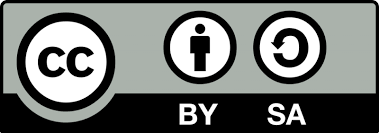EMOCREA and educational inspection: realities and challenges
DOI:
https://doi.org/10.23824/ase.v0i37.757Downloads
Abstract
The area of "Emotional Education and Creativity" (EMOCREA) was born in the Canary Islands with the intention of implementing a compulsory curriculum that favors the acquisition of emotional and creative skills in Primary Education students, as a response to the new challenges imposed by the complex, adverse and uncertain society, that we have had to live. The objective of this work is to offer a set of arguments that justify the relevance of this curricular innovation, together with the assessment made by a sample of 16 educational inspectors on its implementation, collected through a questionnaire designed for this purpose. All this in order to offer guidance to the education inspectorate so that it can effectively develop the supervision and support that the process of accompanying teachers requires on the path towards a school that educates from the emotional heart.
References
Bueno, D. (2022). El cerebro del adolescente. Barcelona. Grijalbo
Fernández-Berrocal, P. (2012). La Inteligencia que España necesita se puede desarrollar. Santander. Papeles de la fundación Botín.
Morgado, I. (2010). Emociones e inteligencia social. Barcelona. Ariel.
Rodríguez, A. (2014). Gastronomía para aprender a ser feliz. Bilbao. Desclée de Brouwer
Rodríguez, A. (2018). EducaEMOción. La escuela del corazón. Madrid. Santillana.
Rodríguez, A. (2020). Guía Emocreativa para la Vuelta al Cole desde el Corazón. Madrid. Santillana. https://sites.google.com/ull.edu.es/guia-vuelta-al-cole-postcovid/p%C3%A1gina-principal?authuser=0
Saint-Exupéry, A. (1999). El Principito. Madrid. Alianza Editorial
How to Cite
Issue
Section
Published
Keywords:
emotional education, creativity education, educational inspection, educational supervision, counsellingLicense

Attribution Share-Alike CC BY-SA
Those authors who have publications with this magazine, accept the following terms:
A) The authors will retain their copyrights, which will be simultaneously subject to the Creative Commons Attribution License that allows others to re-mix, modify and develop on your work even for commercial purposes, provided they credit you And to license their new works under the same terms.
B) The authors will retain the rights of exploitation of the intellectual property of this work, and especially the rights of reproduction, distribution, transformation in any of its modalities and public communication of said work, which will be simultaneously subject to the License Of recognition of Creative Commons that allows others to re-mix, modify and develop on your work even for commercial purposes, provided they credit you and license your new works under the same terms.
Creative Commons Attribution-ShareAlike 4.0 International Public License

